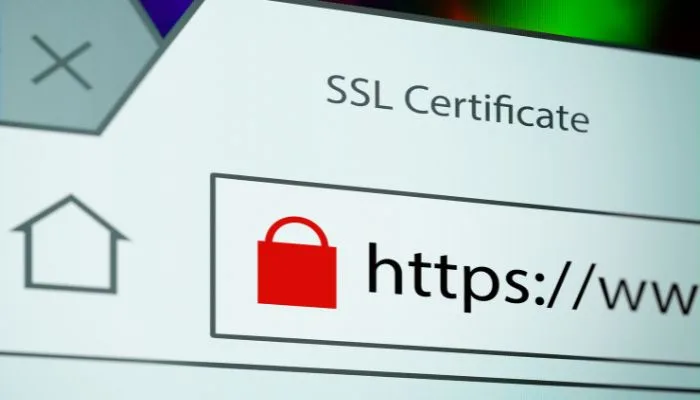Table of Contents
What is SSL?
SSL stands for Secure Sockets Layer and is a cryptographic protocol that provides secure communication over the Internet. It encrypts the data transmitted between a web server and a client, making it nearly impossible for hackers to intercept and decipher the information.
Due to its many flaws, SSL was deprecated in 2015 by the Internet Engineering Task Force (IETF). Newer protocols like Transport Layer Security (TLS) have taken its place. Although SSL is still in use, it is used mostly for compatibility with older systems; TLS is now the standard for protecting communications over the internet.
SSL was also used to authenticate and encrypt other programs running at the network transport layer, in addition to safeguarding internet connections. The primary function of SSL was to encrypt data sent between a user’s browser and a server. It paved the way for secure transactions between buyers and sellers, laying the groundwork for the development of e-commerce. Threat actors could potentially intercept data traveling to and from a website without SSL.

How Does SSL Work?
SSL works through a process called encryption. When a client initiates a connection with a secure website, the server presents its SSL certificate, which contains a public key. The client uses this public key to encrypt the data it wants to send. Upon receiving the encrypted data, the server uses its corresponding private key to decrypt it and process the request.
Encryption and Decryption. At the heart of SSL lies encryption and decryption. When a user accesses a secure website, their browser and the server engage in an intricate dance of encryption. The data is encrypted on the user’s end and sent to the server, where it is decrypted, and processed, and vice versa. This encryption process keeps sensitive information, such as login credentials and credit card details, safe from prying eyes.
Handshake Protocol. Before any data transfer occurs, SSL initiates a handshake protocol. During this phase, the browser and server verify each other’s identity and agree on the encryption method to be used for the session. This ensures that users are connecting to the intended website and not a fraudulent one.
Data Integrity. SSL also ensures data integrity. It employs hashing algorithms to verify that the data sent has not been tampered with during transmission. If any alterations are detected, the connection is terminated, protecting users from potential data manipulation.
Types of SSL Certificates
There are various types of SSL certificates available, each serving different purposes:
- Domain Validated (DV) SSL Certificates: These certificates verify the ownership of the domain and are typically used by small websites and blogs.
- Organization Validated (OV) SSL Certificates: These certificates require additional verification to ensure the legitimacy of the organization behind the website.
- Extended Validation (EV) SSL Certificates: EV certificates provide the highest level of trust and security. They involve a rigorous verification process and display the organization’s name in the browser’s address bar.
- Wildcard SSL Certificates: Wildcard certificates secure a domain and its subdomains, allowing for the protection of multiple websites with a single certificate.
Why is SSL Important?
The primary importance of SSL is to protect sensitive information during transmission. Without SSL, data can be intercepted and accessed by cybercriminals, jeopardizing user privacy and security. SSL guarantees that even if intercepted, the data remains encrypted and unreadable.
Websites that implement SSL display a padlock icon and “https://” in their URLs, assuring visitors of a secure connection. This visual cue instills trust in users, making them more likely to engage with the website, share their information, and complete transactions.
Search engines, like Google, prioritize secure websites in their rankings. Having an SSL certificate can boost your website’s SEO, potentially leading to higher search engine rankings and increased visibility.
Advantages and Disadvantages of SSL
Implementing SSL on your website offers numerous benefits:
- Data Encryption: SSL encrypts data, ensuring that it remains confidential during transmission.
- Authentication: SSL certificates verify the identity of the website, giving users confidence that they are communicating with the intended server.
- Improved SEO: Search engines like Google prioritize websites with SSL certificates, boosting their search rankings.
While SSL brings significant security advantages, it also has some drawbacks:
- Cost: Some SSL certificates can be expensive, especially those with extended validation.
- Performance Impact: Implementing SSL can slightly slow down website performance due to the encryption and decryption processes.
- Compatibility: Older web browsers may have compatibility issues with certain SSL certificates, potentially causing errors for some users.
How to get an SSL Certificate
Obtaining an SSL certificate involves several steps:
- Choose a Certificate Type: Decide on the SSL certificate type that suits your website’s needs. Options include Domain Validated (DV), Organization Validated (OV), and Extended Validation (EV) certificates.
- Generate a Certificate Signing Request (CSR): This is a file containing your server’s public key. You’ll need to provide this to the CA during the application process.
- Submit Documentation: Depending on the certificate type, you may need to provide various documents to verify your identity and ownership of the domain.
- Validation: The CA verifies the information you provided and issues the SSL certificate.
- Install the Certificate: After receiving the certificate, you’ll need to install it on your server. Your hosting provider or IT team can assist with this step.
- Test Your SSL: Ensure that everything is working correctly by testing your SSL setup.
SSL vs. Other Security Protocols
While SSL is widely used, it is essential to understand how it compares to other security protocols:
- TLS (Transport Layer Security): TLS is an updated version of SSL and offers similar security features. It is recommended to use the latest TLS versions for enhanced security.
- VPN (Virtual Private Network): VPNs create a secure connection between a user’s device and a private network. While SSL primarily secures website communication, VPNs protect all internet traffic.
SSL vs. TLS
SSL and TLS are often used interchangeably, but they are not the same. SSL was the precursor to TLS, which is a more secure and updated version. TLS offers improved cryptographic algorithms and stronger security protocols. In practice, when people refer to SSL, they are usually referring to the more modern TLS.
When setting up secure connections for your website, it’s essential to choose the right protocol. TLS is the recommended choice, as it provides enhanced security features. However, it’s crucial to ensure that your server and website are configured to support TLS.
| Aspect | SSL (Secure Sockets Layer) | TLS (Transport Layer Security) |
|---|---|---|
| Definition | SSL is a cryptographic protocol designed to secure data transmission over the internet. | TLS is an updated and more secure version of SSL, serving the same purpose of securing data during transmission. |
| Security | SSL is considered less secure compared to TLS. Over the years, vulnerabilities like Heartbleed have been discovered. | TLS is considered more secure and robust than SSL. It includes various security improvements over its predecessor. |
| Version History | SSL has multiple versions, including SSL 2.0, SSL 3.0 (deprecated), and TLS 1.0 (often referred to as SSL 3.1). | TLS comes in various versions, with TLS 1.2 and TLS 1.3 being the most widely used today. |
| Encryption Algorithms | SSL uses encryption algorithms like RC4 and DES, which are now considered weak and susceptible to attacks. | TLS employs stronger encryption algorithms like AES, making it more resistant to modern hacking techniques. |
| Key Exchange Mechanism | SSL uses RSA as the primary key exchange mechanism. | TLS offers various key exchange mechanisms, including RSA, Diffie-Hellman, and Elliptic Curve Diffie-Hellman (ECDH), providing more flexibility and security. |
| Vulnerabilities | SSL has been plagued by vulnerabilities over the years, making it less suitable for securing sensitive data. | TLS addresses many of the vulnerabilities found in SSL, making it a more robust choice for secure communications. |
| Industry Recommendations | Industry standards and security experts recommend discontinuing the use of SSL due to its security flaws. | TLS is the recommended choice for securing web communications, and SSL is largely deprecated. |
| Compatibility | Some older systems and browsers may still support SSL, but its usage is discouraged. | TLS is widely supported by modern browsers and systems, ensuring compatibility and security. |



